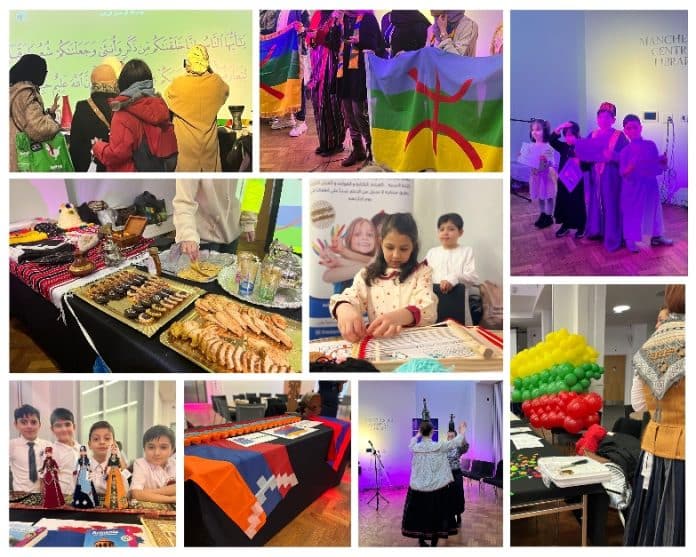In the streets of Manchester, you may hear as many as 200 different languages spoken, and more than half of the city’s residents are estimated to speak two or more languages. Relative to its population size, the city is one of the most linguistically diverse in Europe, and International Mother Language Day – celebrated on February 21 – marks a key moment in its annual calendar.
A UNESCO City of Literature
Designated a UNESCO City of Literature in 2017, Manchester is one of the fastest growing cities in the United Kingdom, with a thriving and dynamic creative scene. It is home to four historic libraries, 23 public libraries, two universities in the city centre, plus two writing schools.
This year is the eighth year Manchester is celebrating International Mother Language Day, an annual United Nations observance which promotes linguistic and cultural diversity and multilingualism.
“In Manchester, making International Mother Language Day an official calendar day resonates with the city’s long-standing commitment to be a City of inclusion and cohesion,” explains Ivan Wadeson, Executive Director, Manchester City of Literature. “It helps foster tolerance and understanding and helps show how we can build inclusive and sustainable cities by removing language hierarchies. It also recognises the economic possibilities a linguistically diverse population brings, for international trade and investment, and for the visitor economy.”
After English, languages with the largest number of speakers in Manchester are Urdu, Arabic, Chinese, Bengali, Polish, Panjabi, and Somali. The international day, however, “is about celebrating all languages present in our city, not just the more prevalent,” Ivan Wadeson notes. This year’s events therefore involve languages such as Roma, Kurmanji, Italian and Lingala.
Young people in the spotlight

To mark the international day, events in Manchester will involve a strong focus on young people in and out of education, and on families.
“It is important to make children feel comfortable and confident with different languages at an early age to support language acquisition at later life stages and to strengthen their identity as global citizens,” explains Ivan Wadeson.
Throughout February and March in the city, there will be multilingual museum activity trails; word games in different languages; story time in Spanish and writing workshops in Arabic.

Manchester Metropolitan University will hold its Mother Tongue Other Tongue competition for schoolchildren, with entrants to submit a poem, song or lullaby to celebrate their mother language, or to write a poem or song in a language that is not their first. For budding translators, Manchester In Translation will be offering advice and insight into literary translation as a professional practice in a three-day online conference.
Global network of cities
Manchester is also connecting with fellow UNESCO Cities of Literature to celebrate the international day.
Manchester Multilingual City Poet Anjum Malik, who writes in Urdu and English, started a multilingual chain poem, ‘Words From the Childhood Home’, which reflects on the power of family, native languages and memory. Poets from cities within the UNESCO literature network (from Bucheon, Dunedin, Edinburgh, Heidelberg, Lviv, Melbourne, Montevideo, Nottingham, Seattle, Tartu and Wonju) responded with four-line stanzas in their mother tongue, with translation in English, to produce a poem which captures their international childhoods.
Exhibitions and films screened in Manchester also include multilingual work from Reykjavik, Bucheon, Nanjing, Angouleme and Slemani.
The power of diversity
Manchester’s language day celebrations began as grassroots initiatives in neighbourhoods. Today, they are built into the infrastructure and policy framework of the city.
For Ivan Wadeson, celebrating multilingualism means supporting, protecting and harnessing the numerous opportunities that spring from being a multicultural and multilingual city.
“Manchester’s great strength is its diversity, and we want to acknowledge and celebrate how diversity and language diversity make the city better for everyone”.




